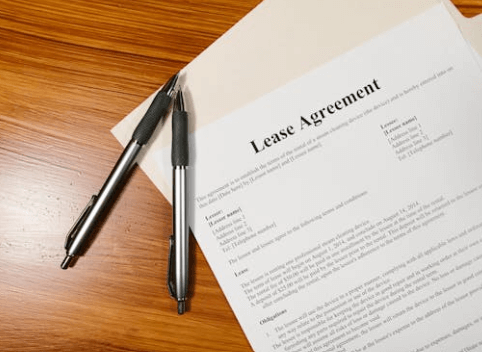As a tenant, navigating the complexities of rental agreements can be challenging, especially when understanding your rights during the property sale process. In this blog, we will delve into and explore the essential tenants’ rights when landlord sells property in Cape Coral. Tenants must be informed about their rights to protect their interests when a landlord decides to sell their property. Join us as we delve into the key aspects of tenants’ rights when landlord sells property in Cape Coral, Florida, providing you with the knowledge needed to advocate for yourself.
In the bustling real estate market of Cape Coral, Florida, savvy investors like Steve Daria and Joleigh are actively buying properties, which can impact current tenants. Understanding your rights as a tenant during these transitions is essential, especially when new owners may have different plans for the property. Understanding what lies ahead can empower you to confidently and clearly navigate this phase.
Understanding Tenants’ Rights in Cape Coral
In Cape Coral, tenants often wonder what happens when their landlord decides to sell the house.
The good news is that tenants do have rights, and there are clear guidelines that both parties must follow.
Firstly, it’s important to understand that having a lease agreement gives tenants a legal claim to remain in the house until the lease ends, even if the property changes ownership.

This means that unless there’s a specific clause in the lease agreement that permits an early termination upon sale, tenants can continue to reside in the home until their lease expires.
Legal Protections for Tenants
Tenants in Cape Coral are protected under Florida’s landlord-tenant laws.
Even when the landlord is selling, tenants are entitled to privacy and cannot be forcibly removed without proper legal proceedings.
Additionally, tenants should be notified well in advance about showings or inspections.
While landlords can showcase the property to potential buyers, they must respect the tenant’s rights to privacy and provide appropriate notice – typically 24 hours, unless otherwise stated in the lease agreement.
Lease Agreements and Their Impact
The lease agreement is a critical document that states the terms and conditions of the rental arrangement.
When it comes to selling the property, what’s stated in the lease can significantly impact both parties’ actions.
For tenants, having a solid lease agreement means they can rely on the terms set forth, including the duration of their stay.
If the property is sold, the new owner inherits the lease and must honor its terms unless both parties conform to modify or terminate it.
Get An Offer Today, Sell In A Matter Of Days
Notice Requirements for Sale
One key aspect of tenants’ rights when a landlord sells property in Cape Coral is the notice requirement.
Landlords must provide tenants with appropriate notice regarding the sale and any changes that might occur as a result.
The timing of this notice can vary based on the lease agreement and state laws.
Typically, a notice period of between 30 to 60 days is standard, allowing tenants reasonable time to make necessary arrangements if they choose not to remain in the property after the sale.
Showings and Tenant Privacy
Selling a property often involves showings to potential buyers.
However, tenants have a right to privacy and must be informed about any planned visits.
Landlords should coordinate showings at convenient times for tenants and provide adequate notice.
The balance between marketing the property and respecting tenant privacy is a delicate one, but it’s essential for maintaining goodwill and cooperation.
Security Deposits and Their Handling
Another important consideration is the handling of security deposits.
When a property is sold, the responsibility for the security deposit typically transfers to the new owner.
It’s vital for tenants to document the condition of the property upon moving out.
This record can serve as evidence if disputes arise relating to the return of the security deposit.
What Happens After a Property Sale?
After the property is sold, tenants might wonder what changes to expect.
Generally, the sale of a property doesn’t automatically terminate the lease.
The new owner assumes the authority of the landlord and must adhere to the existing lease terms unless both parties agree to different terms.
Tenants should communicate with the new owner to establish lines of communication.
Strategies for Tenants During Property Sales
Tenants can take proactive steps to secure their interests during a property sale in Cape Coral.
Staying updated and maintaining open communication with the landlord and potential buyers is key.
- Review the Lease: Understand your rights and obligations as outlined in the lease agreement.
- Document Everything: Keep records of notices, communication, and any agreements made with the landlord or new owner.
- Seek Legal Advice: If you’re unsure about your rights, consult with a legal professional to clarify any concerns.
- Be Cooperative: Work with the landlord to facilitate showings while ensuring your privacy is respected.

Communication Tips for Landlords
For landlords, effective communication is essential to a successful property sale.
Keeping tenants informed and addressing their concerns can help maintain a positive environment during this transition.
- Provide Clear Notices: Ensure that tenants receive timely and clear notices regarding the sale and any scheduled showings.
- Respect Privacy: Coordinate showings at times that are convenient for tenants and provide proper notice.
- Transfer Information: Clearly outline the terms of lease and security deposit arrangements for the new owner.
Conclusion
Understanding tenants’ rights when landlord sells property in Cape Coral is crucial for both tenants and landlords. By familiarizing themselves with state laws and lease agreements, tenants can protect their rights and ensure a smooth transition during the property sale. Landlords, on the other hand, should prioritize open communication and respect for tenant privacy to facilitate a successful sale.
**NOTICE: Please note that the content presented in this post is intended solely for informational and educational purposes. It should not be construed as legal or financial advice or relied upon as a replacement for consultation with a qualified attorney or CPA. For specific guidance on legal or financial matters, readers are encouraged to seek professional assistance from an attorney, CPA, or other appropriate professional regarding the subject matter.

